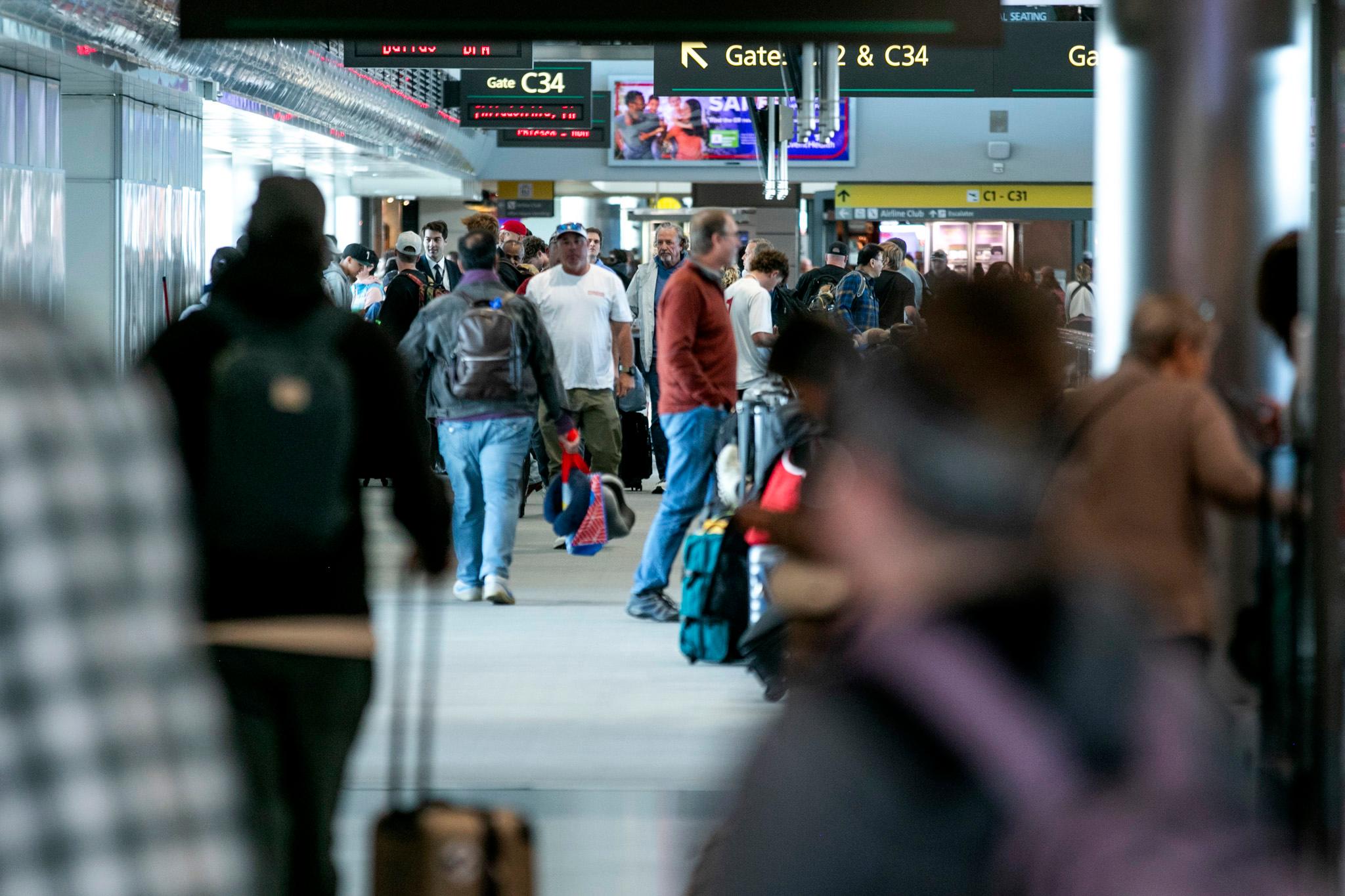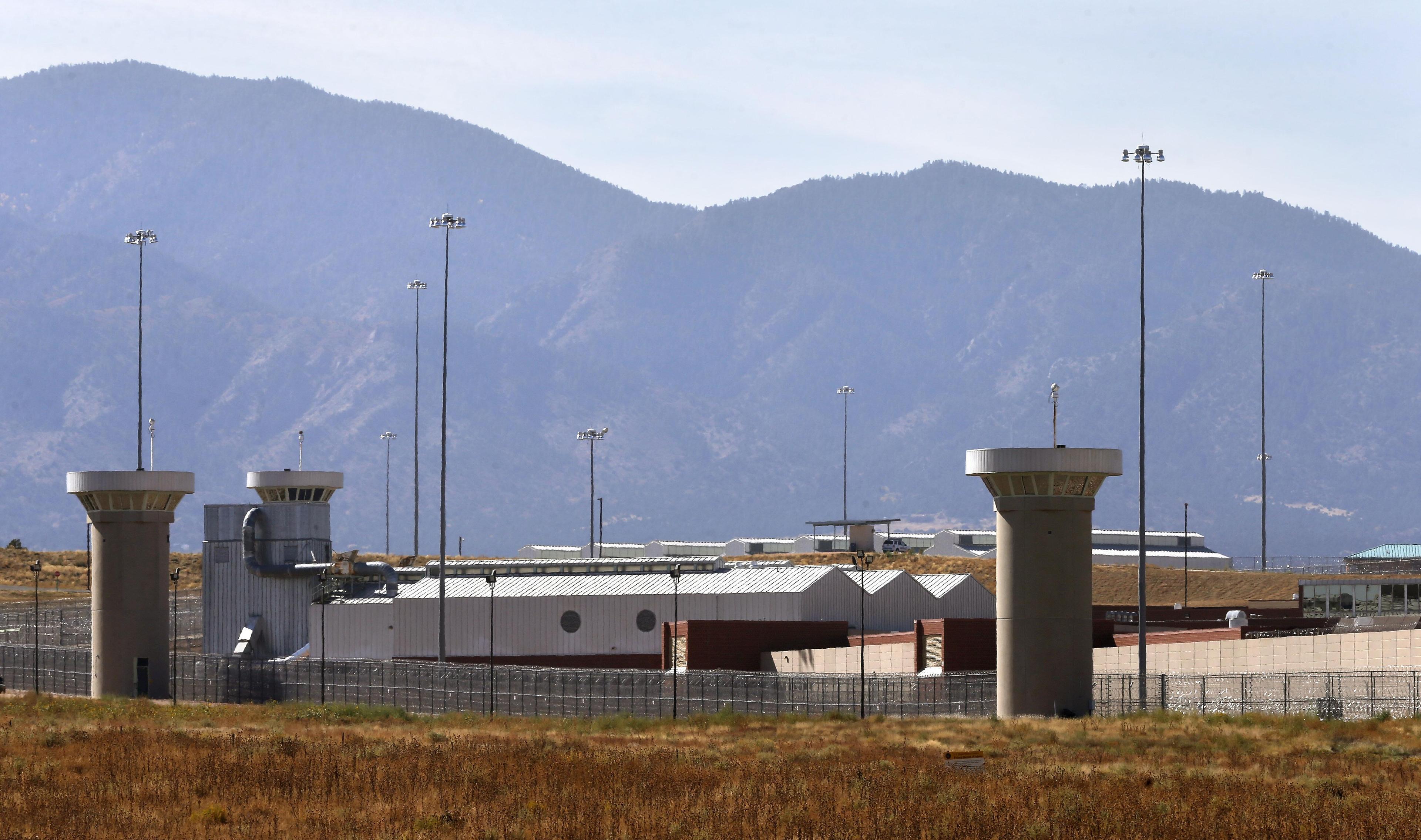
Russian Consul General Sergey Petrov says he sees "a time of opportunity" in Colorado under President Donald Trump as he visited the state seeking to improve trade.
If Petrov is right, there's a lot of room to grow: Colorado exported about $18 million to Russia in 2016, and Russia sent about $6 million in goods here. Petrov says he sees a market for Colorado's high tech products in Russia. He also points to the fact that Russia has long sold its RD-180 rocket engine to U.S. aerospace companies, including Colorado-based United Launch Alliance. Those sales, though, have been increasingly controversial: Congress has given the Department of Defense until 2022 to develop a U.S.-made engine and stop buying the RD-180 from Russia.
Conversation Highlights With Sergey Petrov
On the market for Colorado products in Russia:
I'm sure that we have lots of opportunities here, in trade, in investment, in having some joint projects. If we speak of what you can take to Russia, Russia .. is still in the middle of big economic transition. That would be true about any sector of our economy. So our economy will now require lots of machinery, good technology. I think that could be number one. It's actually number one, as far as, you know, our bilateral trade with Colorado right now. But I think this could increase even more."
On Congress' decision to eventually stop buying the Russian-made RD-180 rocket engine:
The decision is "absolutely (a) sovereign decision for this country to have their own engines and use them for the space launches. But as far as I know, nobody complains about that right now. If we speak about people who are in (the) space industry, everybody is happy because Russian engines are, first, reliable, and second, cheap."
On the U.S. intelligence community's conclusion that the Russian government attempted to interfere in the 2016 election:
"If we speak about the Russian government being involved in this kind of hacking, it's absolutely ridiculous. If we are speaking about people from Russia being involved in that, I don't know. Hacking is a universal problem and by the way, my government has been talking to the U.S. government for several years now, suggesting that we deal with this challenge together."
Read the transcript:
Ryan Warner: Russia's man in the western United States is in Colorado this week. Sergey Petrov is Russia's consul general based in San Francisco. His territory covers eight states, including ours. While he's in town, Petrov is meeting with Gov.Hickenlooper, business leaders and students at Metro State. He says there's great opportunity here. And yet, it's a fraught time in U.S.-Russian relations, with findings by the American intelligence agencies that Russia tried to influence the election. Mr. Petrov, Welcome to the program.. Sergey Petrov: Thank you very much, I am happy to be with you. RW: What makes you think this is the time for improved relations and increased trade between Russia, and I'll say specifically Colorado? SP: I think it's a time of opportunity. It's a new administration in Washington,D.C. and we are very hopeful that we'll be having renewed dialogue with the new administration. But at the same time, our attitude towards the United States has always been the same. We can see this country as one of our main partners, be it world politics, be it economy, be it trade. RW: I'll say that the amount of trade between Colorado and Russia is relatively small. Currently according to Colorado's World Trade Center, the state exports about $18 million in goods to Russia, imports about $6 million. A big part of Russia's import trade to Colorado is for instance airplane and helicopter parts. Colorado in turn sends Russia computer components, integrated circuits, that kind of thing. Where do you see opportunities for increased trade? SP: You did put it pretty diplomatically that our trade is not that big. I would put it that it's too small for Russia and Colorado and same goes for our trade with the United States in general. I'm sure that we have lots of opportunities here, in trade, in investment, in having some joint projects. If we speak of what you can take to Russia, Russia in the, it's still in the middle of big economic transition. That would be true about any sector of our economy. So our economy will now require lots of machinery, good technology. I think that could be number one. It's actually number one as far as, you know, our bilateral trade with Colorado right now. But I think this could increase even more. You mentioned transportation equipment, helicopter part and aircraft parts, with Colorado being very well-known state with advanced aerospace industry, I think this is huge potential for the future. RW: What's interesting is that the U.S. actually purchases an engine called an RD-180 which has been the subject of extended debate in this country, this is a rocket engine. Congress has called for an end to their use in the U.S.in five years with the idea of developing American rocket engines to get payloads into space. What would you say in particular about that aspect of aerospace? SP: Yeah I would say that it's a wonderful example of what we can do together. So this project has been going on for like 15 years now. RW: Yeah and it's connected to let me say United Launch Alliance in Colorado. SP: Absolutely. And it will be going on for some time as far as I know. Certainly it's absolutely sovereign decision for this country to have their own engines and use them for the space launches. But as far as I know, nobody complains about that right now. If we speak about people who are in space industry, everybody is happy because Russian engines are first reliable, and second, cheap. RW: I'll say if there's one man who's interested in an American replacement for the Russian engines, it's Elon Musk at SpaceX who is in a race to try to develop something cheaper. President Trump has talked about improved relations between the United States and Russia but he has come under a lot of pressure to take a firmer stance towards your country. Earlier this month Colorado Senator Cory Gardner and several colleagues wrote to Trump urging him to pursue using their words here, "A results-oriented but tough-minded in principled policy." The denator said the president should unequivocally condemn Russian aggression in Ukraine and continue or even add to sanctions now in place against your country. On the subject of cyber warfare, the letter said that the US must have, again quoting, "A firm response to this belligerent behavior from Moscow, possibly including diplomatic and economic action and a stronger military posture in Europe." This no doubt refers in parts to Russian meddling in the election. Does that sound like the basis of a friendlier relationship? You talked about a lot of opportunity here. I think some would see that very differently. SP: We have lots of opportunities. Lots of potential, including many challenges that we have in the world,be it terrorism, be it nuclear proliferation, or proliferations of weapons of mass destruction. Cyber security by the way, as well as many even bigger challenges like climate change, like fighting diseases, like protecting our oceans. So we can go on and on with this global challenges that we have. I respect every American politician as I respect my Russian politicians and yes, we are separate sovereign countries and we have every right to have our own decision and our own policy. So no matter what is being said about Russia right now is pretty much perceived from not very reliable sources, not very reliable information and facts. So that's very unfortunate. RW: Let me say this. These are U.S. intelligence agencies. SP: But we can … RW: I just want to interrupt there. These are U.S. intelligence agencies and I guess I'd like to ask fundamentally, do you acknowledge Russian meddling in the American election? SP: Absolutely not. If we speak about Russian government being involved in this kind of hacking, it's absolutely ridiculous. If we are speaking about people from Russia being involved in that, I don’t know. Hacking is a universal problem and by the way, my government has been talking to the U.S. government for several years now suggesting that we deal with this challenge together. RW: As part of his sanctions in December, then-President Obama expelled 35 Russian government officials, including four employees of your consulate I believe, saying they were intelligence operatives involved in trying to influence the election. Did any of those four employees engage in espionage to throw the election? SP: Absolutely, absolutely not. Elections in this country is matter that Americans deal with. RW: You were assigned to the Russian Embassy in Washington, D.C. in the 1990s and you've been in your current post, which is based in San Francisco actually, since 2013. Sergey Petrov, how do you think the U.S.-Russian relationship today compares to, let's say when you began? Do you think it's more tense? SP: I think that when I was in Washington, D.C., there was a lot of euphoria on both sides after we did away with communism, but it seems like we still have some, and it's quite natural, we still have our interests that could be a little bit different. And it's natural for big countries like the United States and Russia, with our own histories, traditions, cultures, we are different and that's the beauty of it. It's like all people are different. Same goes true with countries in the world. RW: Thank you for being with us. SP: Thank you, Ryan. |









